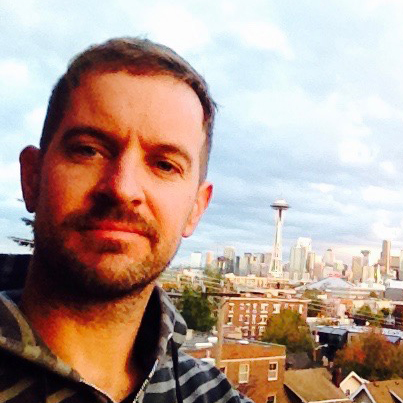Opponents to the proposed Pebble Mine in Bristol Bay, Alaska spoke out Wednesday, 31 July, a day after the EPA decided to reverse Obama-era protections in the region, opening the door for a gold and copper mine slated for development at the headwaters of the world’s biggest sockeye salmon fishery.
Local tribes, commercial and sport fishermen, biologists, and other activists, who have fought the mine for a decade, recently banded together again as the mine’s developer, Pebble Limited Partnership, got a boost after the EPA announced Thursday, 25 July, it would strip Clean Water Act protections in Bristol Bay.
“The EPA’s arbitrary withdrawal of these protections for Bristol Bay that our tribes fought so long and hard for is just another example of the Trump administration working hand-in-hand with Pebble’s lobbyists and paving the way for this toxic project to destroy the world’s last great sockeye salmon fishery for the profit of a foreign mining company,” United Tribes of Bristol Bay Executive Director Alannah Hurley in a statement. “This façade of a process by corrupt, politicized agencies has gone on long enough and it’s time for elected leaders to stand up for our people and stop this project from moving forward.”
In early July, Hurley and others celebrated when the EPA released a report criticizing the Army Corp of Engineers Draft Environmental Impact Statement (DEIS). Opponents of the mine had been critical of the DEIS, calling it a slapdash attempt to ram permits through a favorable administration. They said it was not science-based and grossly underestimated the risks posed by a mine, and for a moment, it seemed the EPA agreed.
The Bristol Bay Regional Development Association (BBRSDA), a group funded by a one-percent fish tax on driftnet landings in Bristol Bay, called the reversal “outrageous and astonishing.” The BBRSDA, whose mission is to maximize the value of fish caught in the region, has fought Pebble Mine for years, arguing that the mine causes a direct threat to the fishery’s unspoiled ecosystem.
“Salmon flourish in the Bristol Bay watershed like nowhere else on earth because of pristine habitat perfectly suited to sockeye salmon. This one region of Alaska produces roughly half of the world’s sockeye salmon harvest,” BBRSDA Executive Director Andy Wink. “If there is any environmental habitat in the United States that has not yet been degraded and warrants protection under the Clean Water Act, surely Bristol Bay would be at the top of the list. On behalf of our members, we are extremely disappointed and angered by the EPA’s decision to ignore sound science and robust public process.”
Wink and his organization hold that, even if Pebble Mine does not have a catastrophic impact on the fishery, a large, open-pit mine in the remote area would weaken the Bristol Bay brand.
Not only is the sockeye fishery the main economic driver in Bristol Bay, but life revolves around salmon in the native villages that dot the region’s sparsely populated tundra. Here, locals and fishermen are largely skeptical of Pebble Limited Partnership’s claim that the mine will provide jobs and lift the region economically.
“The commercial salmon fishery in Bristol Bay is the largest and most valuable wild salmon fishery in the world. It is the economic foundation of the region, a major part of Alaska’s economy and sustainably employs residents of nearly every U.S. state – creating far more jobs than the proposed mine,” Wink added in his statement.
Meanwhile, in Washington state, where many fishermen reside and much of Alaska’s seafood passes through, U.S. Senator Maria Cantwell released a statement excoriating the Trump administration for lifting the protections.
“The Bristol Bay watershed supports fishermen, shipbuilders, suppliers, sportsmen, restaurants, and over fifty million salmon that make up a 1.5 billion dollar economy,” Cantwell said in a statement released shortly after the EPA’s decision was made public. “The Trump administration’s reckless action today threatens our salmon, our maritime economy, and the livelihoods of thousands of Washington fishermen. This is another example of this administration making a foolish and short-sighted mistake by choosing special interests over working-class jobs.”
Cantwell, a Democrat, has long been an opponent of the Pebble Mine, urging first the Obama administration and now the Trump administration to take measures the would permanently protect the Bristol Bay watershed from mining activity.
The mine’s developer claims it will create 750 jobs in the Bristol Bay region. Many see this number as inflated, and question the quality of the mining jobs, while pointing out that the sockeye fishery creates 14,000 direct jobs annually. Recent record-setting sockeye runs, combined with a robust market – major processor Icicle Seafoods announced a strong base ex-vessel price of USD 1.35 (EUR 1.21) for 2019 – mean that workers in Bristol Bay, many of whom receive a share of the ex-vessel gross, are making more money than ever.
Last season was the most lucrative in Bristol Bay’s history to date, with fishermen netting over USD 281 million (EUR 249.4 million) in ex-vessel value, nearly half of the statewide ex-vessel total of USD 595 million (EUR 530 million). The 2018 catch of 41.3 million fish was the second largest in history then, but that mark was smashed this season, with catch as of 31 July sitting at just over 44 million for all species, and over 43 million for sockeye.
“This summer, the Bristol Bay fishery has been breaking records, while Washington D.C. bureaucrats are working at recording-breaking speeds to dismantle the protections that would help ensure our salmon continue to feed the world for years to come,” said Norm Van Vactor, a longtime fisherman and CEO of the Bristol Bay Economic Development Corporation. “It is time for our elected leaders to hold federal agencies accountable for the work they are doing and put people, science and the environment that our children will inherit, ahead of politics.”
Photo courtesy of sevenMaps7/Shutterstock







